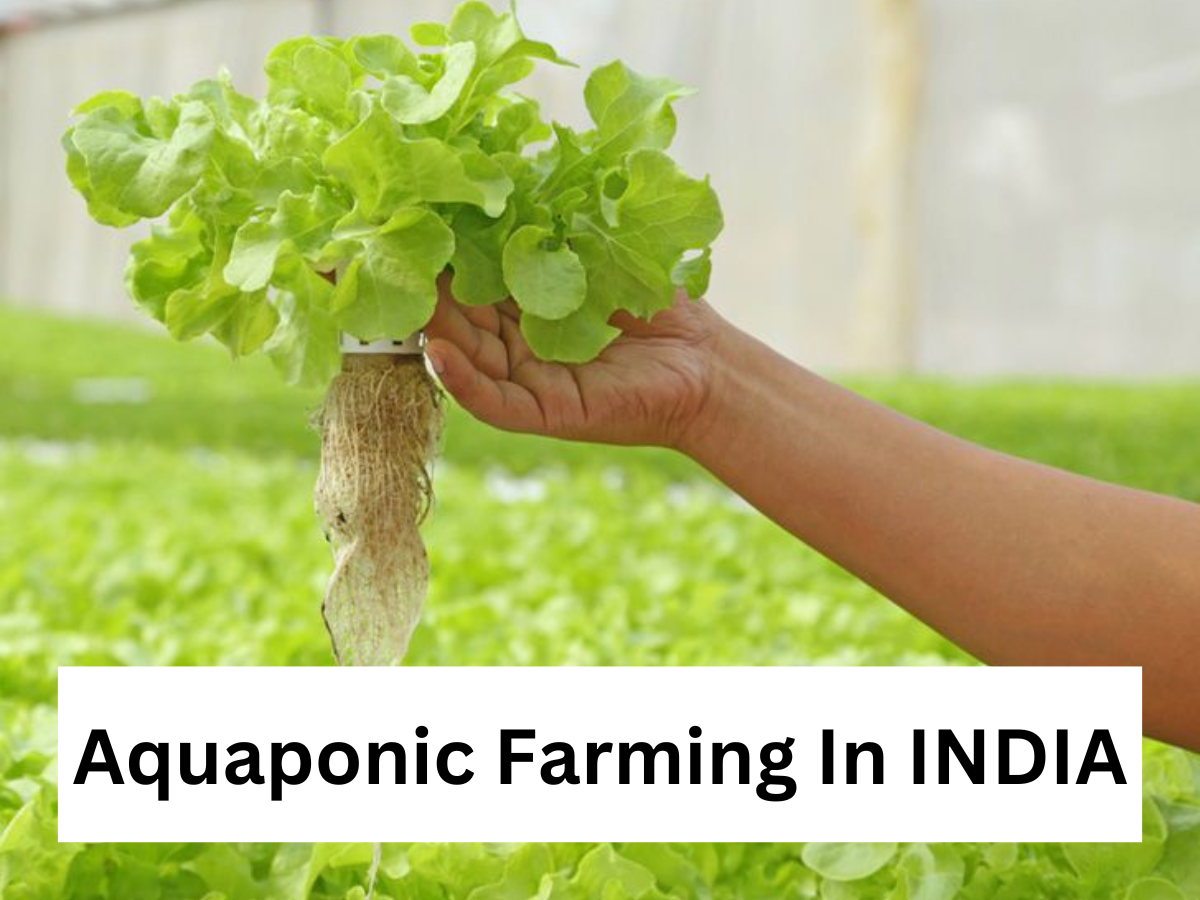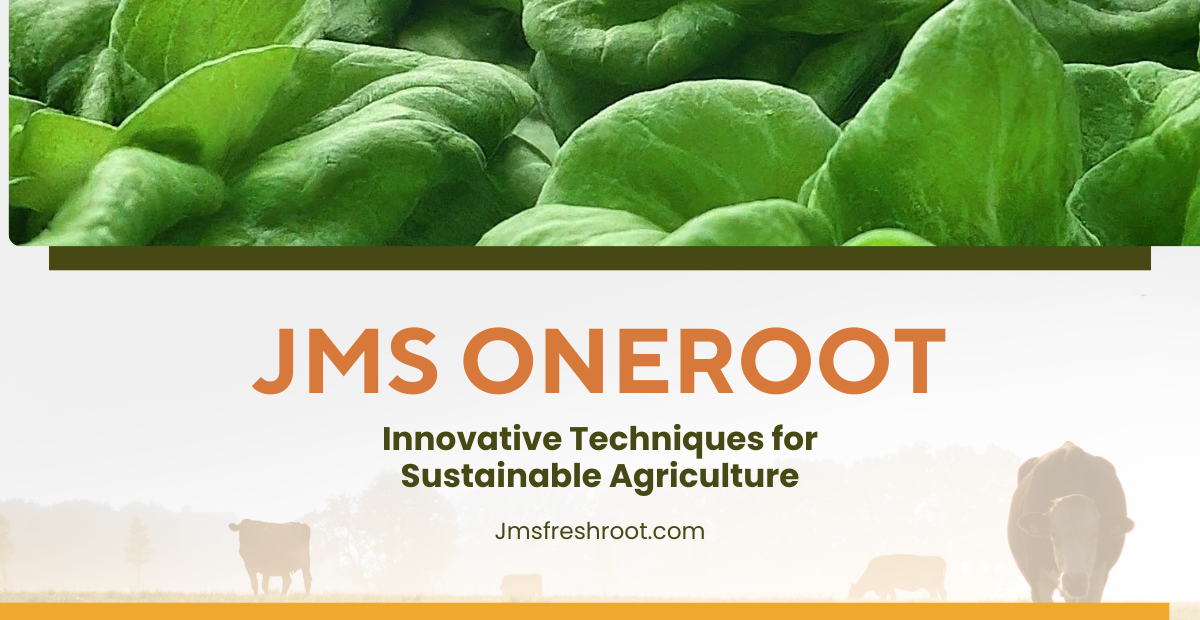
Introduction
Ever heard of farming without soil? Well, that’s the magic of aquaponics, a sustainable method of farming that combines raising fish and growing plants in one integrated system. It’s a revolutionary way to grow food, and one company, JMS Oneroot, is leading the charge in India by creating Asia’s largest aquaponic farm. With a sprawling 22-acre farm located in Bhuj, Kutch, Gujarat, they are setting new standards for sustainable farming and producing exotic vegetables with 100% guaranteed quality.
The founders of JMS Oneroot, Bhavesh Thakkar and Suyash Tyagi, are on a mission to change the way India grows its food, and they’ve already made a massive investment of ₹30 crore to make it happen. Let’s dive into how JMS Oneroot is making waves in the world of aquaponic farming.
The Story Behind JMS Oneroot
Founders and Vision
The dynamic duo behind JMS Oneroot, Bhavesh Thakkar, the founder, and Suyash Tyagi, the CEO, had a bold vision. They wanted to create a sustainable farming system that could thrive in India’s varied climates and provide high-quality produce with minimal environmental impact.
Their dream was to establish an aquaponic farm that could not only produce healthy, pesticide-free vegetables but also educate the next generation of farmers about aquaponics and hydroponics. That’s how JMS Oneroot was born—out of a desire to combine technology and agriculture for a better future.
The Inception of the Farm in Bhuj, Gujarat
Why Bhuj? The founders chose Bhuj in Gujarat for its strategic location. Although the area is known for its dry, arid climate, the aquaponic system they installed allows them to grow vegetables in conditions where traditional farming might struggle. Bhuj’s weather challenges have been overcome with this advanced farming method.
Aquaponics vs Traditional Farming
What Makes Aquaponics Different?
Unlike traditional farming, which requires soil and a lot of water, aquaponics uses 90% less water. Fish tanks and grow beds are integrated into a closed system. The fish provide nutrients for the plants, and the plants, in turn, purify the water for the fish. It’s a sustainable, eco-friendly system that produces fresh vegetables and fish, with little waste.
Environmental and Economic Benefits
Aquaponic farming is not only more water-efficient but also more economically sustainable. Traditional farming methods rely heavily on fertilizers and pesticides, but in aquaponics, these chemicals aren’t needed. This reduces costs and promotes healthier produce, which is especially important for the Indian market.
How Aquaponic Farming Works
The Science Behind Aquaponics
At the core of aquaponics is a symbiotic relationship between plants and fish. The waste produced by fish is full of nutrients. This nutrient-rich water is fed to the plants, which absorb the nutrients and clean the water before it cycles back to the fish. It’s an innovative and self-sustaining loop that continuously works to grow plants while raising healthy fish.
Fish and Plant Integration
The fish in JMS Oneroot’s aquaponic system are an essential part of the process. The nutrient-rich waste they produce becomes natural fertilizer for the plants. This method mimics nature, where fish and plants have a mutually beneficial relationship. It’s farming with nature, not against it.
JMS Oneroot: Asia’s Largest Aquaponic Farm
The 22-Acre Facility in Bhuj
JMS Oneroot’s facility in Bhuj spans 22 acres, making it the largest of its kind in Asia. The farm is built using advanced technology, with state-of-the-art aquaponic systems designed to produce high-quality, exotic vegetables year-round.
Investment in Sustainability: ₹30 Crore
The founders have invested a whopping ₹30 crore into this project, making it clear that they’re serious about leading the aquaponic revolution in India. The investment covers everything from infrastructure to research and development, ensuring the farm stays at the forefront of innovation.
Exotic Vegetables Grown at JMS Oneroot
Types of Exotic Vegetables Cultivated
At JMS Oneroot, they grow a variety of exotic vegetables, such as kale, lettuce, bell peppers, and herbs like basil and parsley. These vegetables are not only rich in nutrients but are also grown in a completely pesticide-free environment.
100% Quality Guarantee and Standards
One of the key selling points for JMS Oneroot is their 100% quality guarantee. They adhere to the highest standards, ensuring that all the vegetables produced are fresh, organic, and of premium quality. This makes their produce highly sought after by health-conscious consumers and premium markets.
Production Process and Technology
Cutting-Edge Technology Used at JMS Oneroot
The farm uses the latest aquaponic technology to optimize the growth cycle of both plants and fish. Automation and monitoring systems ensure that the plants receive the right amount of nutrients and that the water is perfectly balanced for the fish. This makes the production process efficient and scalable.
Organic and Pesticide-Free Produce
All the vegetables grown at JMS Oneroot are organic and pesticide-free, giving them an edge in the market where consumers are increasingly demanding healthier, chemical-free food.
Education and Community Involvement
Hydroponics and Aquaponics Courses by JMS Oneroot
JMS Oneroot isn’t just about farming; they’re also focused on education. They offer courses in hydroponics and aquaponics, aiming to teach the next generation of Indian farmers how to embrace these modern farming techniques. The courses are designed to provide practical knowledge and hands-on experience in these revolutionary farming methods.
Spreading Knowledge About Sustainable Farming in India
By offering these educational programs, JMS Oneroot is helping to spread awareness and knowledge about sustainable farming practices throughout India. Their courses attract students, aspiring farmers, and even established agricultural professionals who want to learn about the future of farming.
Why Learn Aquaponics?
The Growing Demand for Sustainable Farming Practices
Sustainable farming is not just a trend; it’s a necessity. As global populations grow and resources like water become more scarce, aquaponics presents a solution that can help meet the demand for fresh, nutritious food.
Economic Opportunities for Aspiring Farmers
Aquaponics offers new economic opportunities for farmers in India. By learning and adopting this method, farmers can tap into the growing demand for organic and exotic vegetables, both domestically and internationally.
The Benefits of the Courses
Practical Learning and Expertise Offered
The courses offered by JMS Oneroot aren’t just theoretical. Students get to learn hands-on in one of Asia’s most advanced aquaponic facilities, giving them the skills they need to start their own farms.
The Significance of Training Programs for India’s Agriculture Sector
India’s agriculture sector is vast, and by introducing new farming techniques like aquaponics, JMS Oneroot is helping to modernize the industry and make it more sustainable for future generations.
Future Prospects for JMS Oneroot
Expanding Reach Across India
The success of JMS Oneroot in Bhuj is just the beginning. They have plans to expand their operations across India, bringing aquaponic farming to more regions and introducing new products.
Plans for Further Innovation and Technology Adoption
As they grow, JMS Oneroot will continue to invest in research and technology, ensuring that they stay at the cutting edge of aquaponic farming.
The Role of Aquaponics in India’s Agricultural Future
Addressing India’s Food Security Issues
Aquaponics can play a major role in addressing India’s food security challenges. With its ability to grow food in limited space and with fewer resources, it could help alleviate some of the pressures on India’s traditional farming methods.
Sustainability in the Context of India’s Agriculture
By adopting sustainable farming techniques, India can not only meet its own growing food needs but also reduce its environmental impact. Aquaponics offers a way forward that benefits both farmers and consumers.
Aquaponic Farming in Arid Regions
Why Bhuj Was the Perfect Location
The founders of JMS Oneroot chose Bhuj not just because of its location but because of the challenges it presented. The arid climate is ideal for demonstrating the power of aquaponics, which requires far less water than traditional farming.
Overcoming Climate Challenges with Aquaponics
The climate in Bhuj can be tough for conventional farming, but aquaponics thrives. This farming technique can overcome climate-related issues, proving that modern agriculture can adapt to even the harshest conditions.
Conclusion
JMS Oneroot is truly pioneering the future of farming in India. By establishing Asia’s largest aquaponic farm in Bhuj, they are setting a new standard for sustainable agriculture. Their commitment to producing high-quality, pesticide-free vegetables and educating the next generation of farmers shows that aquaponics is more than just a business—it’s a movement toward a healthier, more sustainable future for Indian agriculture.
FAQs
- What is aquaponics?
Aquaponics is a sustainable farming method that integrates fish farming and plant growing in a closed-loop system. - Why is JMS Oneroot significant in the aquaponic industry?
JMS Oneroot is Asia’s largest aquaponic farm, located in Bhuj, Gujarat, producing high-quality exotic vegetables using advanced farming techniques. - What are the benefits of aquaponic farming?
Aquaponic farming uses 90% less water, eliminates the need for pesticides, and offers sustainable food production. - How can someone get involved in aquaponics?
JMS Oneroot offers courses on hydroponics and aquaponics to teach aspiring farmers the skills they need to start their own farms. - What crops are grown at JMS Oneroot?
JMS Oneroot grows a variety of exotic vegetables, including kale, lettuce, bell peppers, and herbs like basil and parsley.





